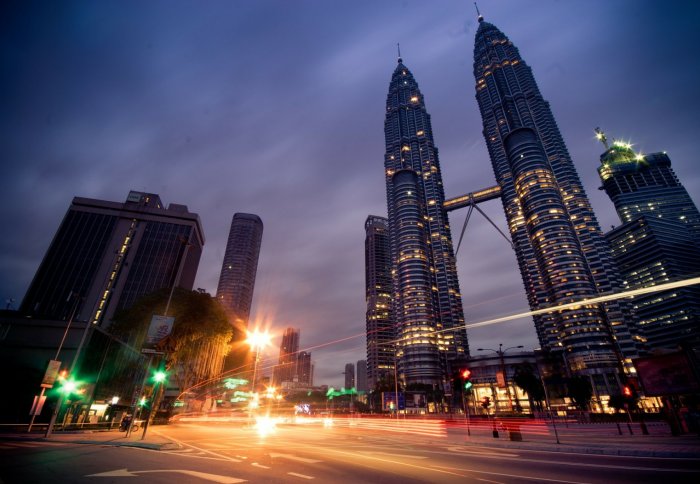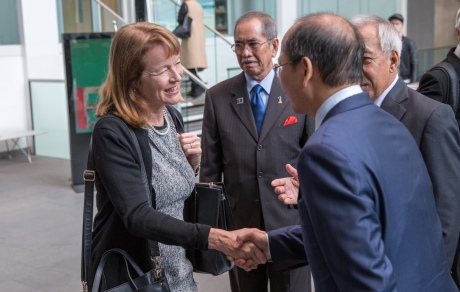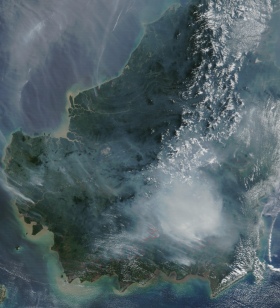'Exceptional Malaysian ties' spotlighted in KL

"Partnership through collaboration" is having a profound impact on higher education, President Alice Gast said on a recent visit to Kuala Lumpur.
In an interview with the New Straits Times, Malaysia’s leading quality newspaper, Professor Gast spoke about Imperial’s deep ties with the country.
Imperial has 573 Malaysian students – the second largest international group – and 2,300 alumni in Malaysia. Imperial’s Malaysian alumni include leading financier Brahmal Vasudevan, who has enabled the College to build its new Aerial Robotics Lab.
In the last five years, Imperial researchers have collaborated on more than 650 papers with their Malaysian peers.

Imperial welcomed Malaysian government leaders in 2016
Professor Gast said: “partnerships across institutions within the country as well as around the world make a big difference. The reason is different perspectives from different cultures and backgrounds; and you look at scientific problems with different perspectives to come out with more creative solutions when you have international collaborations.”
Making a difference
 These collaborations include the Stability of Altered Forest Ecosystems (SAFE) project – a ten-year research project based in the rainforest of Sabah, Malaysia, led by Professor Rob Ewers in the Department of Life Sciences. One of the world’s largest ecological experiments, it is providing insights into how forest ecosystems are affected by logging, and deforestation, in partnership with Universiti Malaysia Sabah.
These collaborations include the Stability of Altered Forest Ecosystems (SAFE) project – a ten-year research project based in the rainforest of Sabah, Malaysia, led by Professor Rob Ewers in the Department of Life Sciences. One of the world’s largest ecological experiments, it is providing insights into how forest ecosystems are affected by logging, and deforestation, in partnership with Universiti Malaysia Sabah.
“SAFE scientists are studying many species in the rainforest to gather information that can be used by palm oil producers on the island to make their plantations more mammal-friendly, and assess whether saving patches of forest within such areas may be beneficial for Borneo’s biodiversity,” said Professor Gast.
“It is really a very exciting project because it takes into account the fact that Malaysia needs oil palm plantations, which involve logging, but it can do it in a more sustainable fashion if the plantations plan how to make those forests recover to prepare for regrowth.”
Professor Gast, who serves on Malaysia’s Global Science and Innovation Advisory Council (GSIAC), also praised Malaysia’s “vibrant” and international start-up culture.
Article text (excluding photos or graphics) © Imperial College London.
Photos and graphics subject to third party copyright used with permission or © Imperial College London.
Reporter
Andrew Scheuber
Communications Division